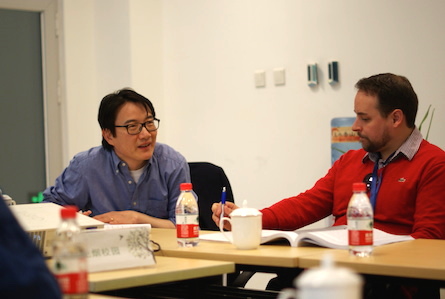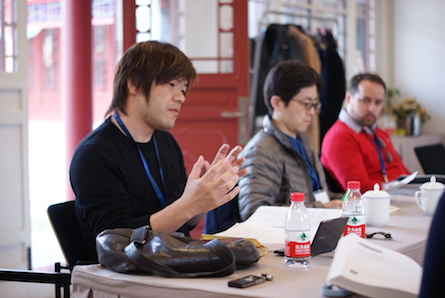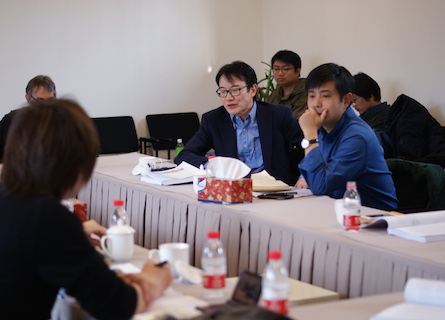【報告】 PKU-UTokyo Spring Institute 2017 (2)
Report on 15th March 2017
In the morning, we listened to the lecture given by Professor Zhang Xudong titled “The Concept of Cultural Politics: The Universal and the Particular in Comparative Theory of Civilizations”. Professor Zhang mainly talked about “cultural politics”, a concept he has been working on for years, in this lecture. He also used An Outline of a Theory of Civilization written by Fukuzawa Yukichi as a case in point to illustrate his theory and its implication.
As far as I’m concerned, we could identify two dimensions in both Fukuzawa’s work and Professor Zhang’s interpretation of it. First of all, we can find a temporal dimension in their theories. Fukuzawa clearly pointed out in his book that the distinction between civilized, semi-civilized, and un-civilized nations were only a temporary one. The reason why Japan at that time needed to learn from the west and abandon the eastern ways was that the strongest powers at that time were dominantly western. According to Fukuzawa, western countries at that time were far from perfect. He hinted at the possibility that in the future when Japan reached a higher level of development, even western countries might learn from Japan. This dialectic of temporal development is sometime overlooked in people’s understanding of Fukuzawa. However, this does not change the fact that his theory is still one based on a linear progressive understanding of history, which could be and was actually used to legitimize violence imposed on later developers by the more advanced parties.
On the other hand, the spatial dimension is another interesting aspect in his speech. Professor Zhang talked about the dialectic of the universal and particular. He reminded us the importance of the concept of “territory” in our discussion of history as well as international politics today. According to Professor Zhang, within each nation, the goals each state as well its people pursue are actually universal in nature. However, the means different countries use to realize them might differ. We need to localize our analysis when analyzing histories and dealing with transnational disputes. This also gives us another chance to reflect on Fukuzawa’s theory and various academic works of our time.
In the afternoon, Mr. Keiichiro Hirano led us on a discussion of Mori Ogai’s work Takasebune. Mr. Hirano treated the story more as a metaphor for the Japanese society at that time. He talked about how important concepts like power, the judicial system as well as modern science and technology unfolded in the story. At the same time, different characters in the novel could also be read as people from different social and economic backgrounds in the Edo period. Their experiences in the story revealed to the readers how Japanese people understood the changing society during that unstable time. On the other hand, during the discussion, issues regarding translation were also mentioned. The materials we read in the institute were all translated into English so that all participants could understand. However, what is lost during translation, and what could be gained through it is a question that needs further exploration.
Lastly, I would like to talk about my personal understanding of the spring institute. The thing I like the most about the institute is the fact that scholars from a variety of backgrounds, not only in terms of nationalities but also academic disciplines, could have discussions on a given topic. While I have read almost all of the materials in the institute, I definitely gained different and new ideas about them through participation. For example, I did not pay attention to Fukuzawa’s use of metaphors relating to the human anatomy in his work before. On the other hand, Professor Yang Lihua’s close reading of Zhuangzi really left me a deep impression. I like the fact that he not only talked about Zhuangzi’s work per se, but tried to show us how this ancient work could actually help us understand our contemporary world.
Finally, I would like to thank The Center for Philosophy at the University of Tokyo as well as Peking University for hosting this wonderful institute. I hope I could be able to participate again in the future.
Qiuyuan Huang (The University of Tokyo)









